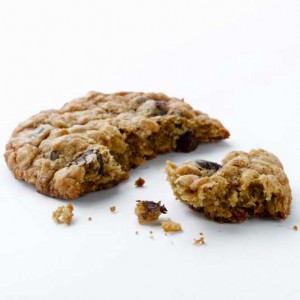 You may be wondering… why is a lactation consultant writing about formula? Because in my world of breastfeeding difficulties including chronic low milk supply, mothers often find they need to supplement breastfeeding with another source of nutrition. Sometimes that’s donor milk from another mother, sometimes banked human milk. But most often it is commercially available formula.
You may be wondering… why is a lactation consultant writing about formula? Because in my world of breastfeeding difficulties including chronic low milk supply, mothers often find they need to supplement breastfeeding with another source of nutrition. Sometimes that’s donor milk from another mother, sometimes banked human milk. But most often it is commercially available formula.
All formulas are not created equal. There are pros and cons to various brands. There are milk-based formulas, soy formulas, organic, non-organic and special formulas. But the most important distinction in my mind is liquid vs powder. Why is this so important?
It turns out that powdered infant formula (PIF) is not sterile. The manufacturing process does not allow for elimination of all germs. In addition, preparation of the product in the home can lead to further contamination. The most concerning bacteria found in PIF is called Cronobacter bacteria.
Cronobacter bacteria is an organism that thrives in dry conditions and it’s very prevalent. The bacteria is found in dry herbs and spices, herbal teas, dry milk manufacturing facilities and household vacuum cleaners. It has also been found in waste water. It can thrive on plastics, rubber and silicone bottle nipples. Clearly it is difficult to avoid this little beast.
Becoming sick from Cronobacter is a rare event, but it can be deadly in young infants. Premature babies and infants younger than 2 months are most vulnerable to Cronobacter illness. Cronobacter illness can lead to blood infections or meningitis. According to The Center for Disease Control (CDC) there are about 4-6 reported cases of Cronobacter illness in infants per year, but it may be under-reported. Recently more awareness has led to higher reported numbers. There were 13 known cases in 2011.
Breastfeeding is the best protection against Cronobacter infection. If possible, provide your baby with breast milk—especially for the first 2 months. “Almost no cases of Cronobacter infection have been reported among infants who were being exclusively breastfed.” (Center for Disease Control and Prevention website).
If your baby uses formula, choose formula that is sold as a liquid. Liquid formula is sterile so is less likely to transmit the bacteria. This is especially important for very young or premature babies.
If you choose to use powdered formula, please do so safely with good hygiene in mind.
- Always wash your hands prior to preparing formula.
- Use clean tongs to fish the scoop out of the container. Wash the scoop after every use.
- Clean bottles in hot dishwasher or hot soapy water plus sterilization.
- Use only clean work surfaces when preparing the bottles.
- Use hot water to prepare the powdered formula—at least 158 degrees F(70 degrees C) This temperature is necessary to kill the bacteria. Cool to room temperature before feeding to baby by placing closed bottle in ice bath.
- If you make the formula ahead of time, refrigerate it immediately and use it within 24 hours.
The Center for Disease Control and Prevention: has more information on this topic. You may find this PDF helpful.


 A thorough lactation evaluation will probably be different than any other health-related visit you’ve experienced. It is time intensive, multi-dimensional, intuitive, experiential and often includes a bit of detective work. The International Board Certified Lactation Consultant (IBCLC) is the
A thorough lactation evaluation will probably be different than any other health-related visit you’ve experienced. It is time intensive, multi-dimensional, intuitive, experiential and often includes a bit of detective work. The International Board Certified Lactation Consultant (IBCLC) is the  n an ideal world, every mother-baby dyad would have access to thorough, accurate, compassionate lactation support from the prenatal period through weaning. Sadly, this is not the case, and sometimes the “support” new families receive is fraught with error– informed by poor (or no) training.
n an ideal world, every mother-baby dyad would have access to thorough, accurate, compassionate lactation support from the prenatal period through weaning. Sadly, this is not the case, and sometimes the “support” new families receive is fraught with error– informed by poor (or no) training. 